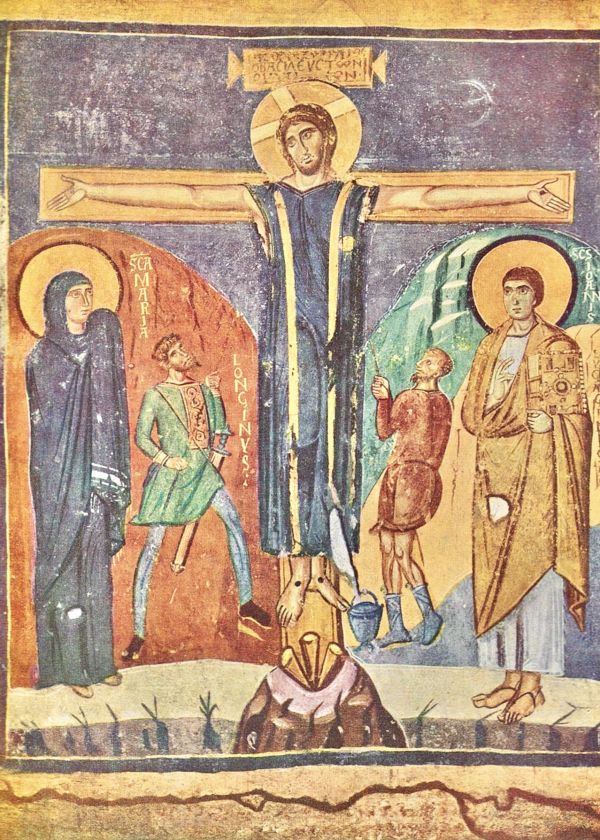Mary in the Church, begetting sons
(Jn 19:25-27)
The short Gospel passage in vv.25-27 is perhaps the artistic apex of the Passion narrative.
In the fourth Gospel the Mother appears twice, at the wedding feast of Cana and at the foot of the Cross - both episodes present only in Jn.
Both at Cana and at the foot of the Cross, the Mother is a figure of the genuinely sensitive and faithful remnant of Israel.
The people-bride of the First Testament is as if waiting for the real Revelation: they perceive all the limitation of the ancient idea of God, which has reduced and extinguished the joy of the wedding feast between the Father and his sons.
Authentically worshipping Israel prompted the shift from religiosity to working Faith, from the old law to the New Testament.
An alternative Kingdom is generated at the foot of the Cross.
Mothers and fathers of a different humanity are being formed, proclaiming the Good News of God - this time for the exclusive benefit of every man, in whatever condition he may find himself.
In the theological intent of John, the Words of Jesus «Woman, behold your son» and «Behold, the Mother of yours» were intended to help settle and harmonise the strong tensions that at the end of the first century were already pitting different currents of thought about Christ against each other.
Among them: Judaizers; advocates of the primacy of faith over works; Laxists, who now considered Jesus anathema, intending to supplant Him with a generic freedom of spirit without history.
At the beginning of second century, Marcion rejected the entire First Testament and appreciated only a part of the New.
To those who now wanted to disregard the teaching of the 'fathers', Jesus proposed to make the past and novelty walk together.
The beloved disciple, icon of the authentic son of God [widespread Word-event (of New Testament)] must receive the Mother, the culture of the Covenant people, at Home - that is, in the nascent Church.
Yet, even if it is in the Christian community that the full meaning of the whole of Scripture is discovered… the Person, the story and the Word of Christ Himself cannot be understood nor will it bear concrete fruit without the ancient root that generated Him.
Projections alone are not enough, even if they shake the mental prisons, often edifices of false certainties: the Seed is not an enemy to be fought, but a virtue that comes from deep within.
The Alliance is precious, it gives the real jolt to life. Thus new family relationships flourish: then the Church is born.
And the Church raised up by its Lord will reveal something portentous: fruitfulness from nullity, life from the outpouring of it, birth from apparent sterility.
In Mary and the faithful icons generated from the breast of Christ - inseparable in the Mission - the intimate cooperation is intensified by moments of humble and silent community existence.
In perfect worshipping the identity-character of the Crucified One and in the movement of self-giving, the freedom of abasing oneself gaits and arises.
If anyone gets down, the new will advance.
And the old can also re-emerge, this time for good. For there are other Heights. For what makes one intimate with God is nothing external.
A river of unimagined attunements will reconnect the human spirit of believers to the motherly work of the Spirit without barriers.
Thus, in silence we will not oppose discomfort. The offended body will speak, manifesting the soul and filling the life, in a crescendo.
To internalize and live the message:
How do you get into the rhythm of this Gospel passage? In which character do you recognise yourself, or why do you see yourself in all of them? What is in each one your measure, which you give to the world?
[Blessed Virgin Mary of Sorrows, September 15]












